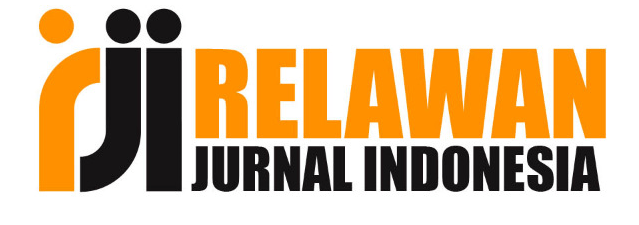HUBUNGAN SELF-EFFICACY DAN WORK ENGAGEMENT PADA MAHASISWA/I ILMU FARMASI
Abstract
ABSTRACT
Work engagement is positive feeling .Work on student is an idea to determine the level of involvement of student in the field of Pharmacy studies. The measuring tool for this research uses the Utrecht work engagement scale for students (UWES-S) 17 items and self-efficacy 10 items. The sample in this study consisted of 86 students from various levels of study in the Pharmaceutical Science department who were already working and were willing to voluntarily fill out a questionnaire distributed online. This research method is quantitative with a cross-sectional study design. The aim of this research is to determine the relationship between self-efficacy and work engagement as indicated by an increase in the cumulative achievement index of students in the field of Pharmacy. The results of this research show that the self-efficacy of Pharmacy Science students has a positive contribution to work engagement which is characterized by vigor, dedication, and absorption. Then, the research results also show that years of education provide a positive relationship with vigor dan dedication. Self-efficacy positive influence on the work involvement of Pharmacy students, where each individual Pharmacy student who has worked, has the ability to divide the time to complete their tasks and has a negative influence to postpone work. The limitation of this research is that it uses samples from certain types of studies.
ABSTRAK
Work engagement adalah perasaan positif seseorang terhadap pekerjaannya. Pekerjaan pada pelajar merupakan pikiran untuk menentukan tingkat keterlibatan mahasiswa/i bidang ilmu Farmasi terhadap studinya. Alat ukur penelitian ini menggunakan Utrecht Work Engagement Scale for Students (UWES-S) item 17 dan Self-Efficacy memiliki 10 item. Sampel dalam penelitian ini terdapat 86 mahasiswa/i berbagai tahun tingkatan studi di jurusan ilmu Farmasi yang sudah bekerja yang memiliki kesediaan yang secara sukarela untuk mengisi kuesioner yang disebarkan secara online. Metode penelitian ini adalah kuantitatif dengan desain studi cross-sectional. Tujuan dari penelitian ini adalah untuk mengetahui hubungan self-efficacy dengan work engagement yang ditunjukan dengan peningkatan nilai indeks prestasi kumulatif mahasiswa/i bidang ilmu Farmasi. Hasil penelitian ini menunjukkan bahwa self-efficacy mahasiswa/i Ilmu Farmasi memiliki kontribusi positif terhadap work engagement yang ditandai dengan vigor, dedication, dan absorption. Kemudian, hasil penelitian juga menunjukkan bahwa tahun pendidikan memberikan hubungan positif yang ditandai dengan vigor dan dedication. Sehingga, sumber daya pribadi seseorang yang pada penelitian ini adalah self-efficacy terhadap keterlibatan kerja mahasiswa/i ilmu Farmasi memberikan pengaruh positif, dimana setiap individu setiap mahasiswa/i Ilmu Farmasi yang telah bekerja, memiliki kemampuan untuk membagi waktu menyelesaikan tugasnya dan memberikan pengaruh negatif untuk menunda pekerjaannya. Keterbatasan pada penelitian ini adalah menggunakan sampel pada jenis studi tertentu.
Keywords
Full Text:
PDFReferences
Bakker AB, Schaufeli WB, Leiter MP, Taris TW. Position paper work engagement: An emerging concept in occupational health psychology. Work & Stress. 2008;22:187-200.
Bakker AB. An evidence-based model of work engagement. Current Directions in Psychological Science. 2011;20:265-269.
Bakker AB, Demerouti E. Job demands–resources theory. In P. Y. Chen & C. L. Cooper. Wellbeing: A complete reference guide (Edisi ke-3). UK: Wiley-Blackwell, 2014.
Bandura Albert. Self-efficacy: Toward a unifying theory of behavioral change. Psychological Review. 1977;84(2):191-215.
Bandura Albert. Self-efficacy: The exercise control. NY: Freeman, 1997.
Dimitriadou S, Lavidas K, Karalis T, dan Ravanis K. Study engagement in university students: a confirmatory factor analysis of the utrecht work engagement scale with greek students. Journal of Well-Being Assessment. 2021;1-18.
Halty MC, Schaufeli WB, dan Salanova M. Good relationships, good performance: The mediating role of psychological capital – A three-wave study among students. Frontiers in Psychology. 2019;10:306-311.
Mardelina E. Mahasiswa bekerja dan dampaknya pada aktivitas belajar dan prestasi akademik. J. Econ. 2017;3:201-209.
Meera KP, Jumana MK. Self-efficacy and academic performance in english. Research in Pedagogy. 2015;25-30.
Mentari AY, Widyastuti. Overview of academic self-efficacy in students working at the surabaya pharmacy academy. Psikologia: Jurnal Psikologi. 2023;10:1-5.
Schaufeli WB, Martinez IM, Pinto AM, Salanova M, Bakker AB. Burnout and engagement in university students: A cross-national study. Journal of Happiness Studies. 2002;30:71–92.
Schaufeli WB, Bakker AB. Utrecht work engagement scale: Preliminary manual. Occupational Health Psychology Unit: Utrecht University, 2003.
Schaufeli WB, Bakker AB. Job demands, job resources, and their relationship with burnout and engagement: A multi-sample study. Journal of Organizational Behavior. 2004;25:293–315.
Schaufeli WB, Bakker AB. Work engagement: A critical assessment of the concept and its measurement. Handbook of Positive Psychology Assessment. 2022:273-294.
Scholz U, Doña GB, Sud S, Schwarzer R. Is general self-efficacy a universal construct?: Psychometric findings from 25 countries. European Journal of Psychological Assessment. 2002;18:242–251.
Schunk DH. Self-efficacy and achievement behaviors. Educational Psychology Review. 1989;1: 173-208.
Schwarzer R. 1994. Optimism, vulnerability, and self-beliefs as health-related cognitions: A systematic overview. Psychology and Health: An International Journal. 1994;9:161-180.
Schwarzer R, Mueller J, Greenglass E. Assessment of perceived general self-efficacy on the internet: data collection in cyberspace. Anxiety, stress, and coping. 1999;12:145-161.
Seligman MEP. Learned optimism: How to change your mind and your life. USA: Vintage Books, 1990.
Sonnentag S. Recovery, work engagement, and proactive behavior: A new look at the interface between non-work and work. Journal of Applied Psychology. 2003;88(3):518-528.
Virga D, Horga A, Illiescu D. Work–life imbalance as a moderator in the relationship between resources and work engagement. Journal of Personnel Psychology. 2015;14:80-90.
DOI: http://dx.doi.org/10.52118/edumasda.v8i2.234
Refbacks
- There are currently no refbacks.
Copyright (c) 2024 Rohanah Rohanah, Yulia Yulia, Lailatul Qomariyah, Ika Suswanti, Ma'muroh Ma'muroh

This work is licensed under a Creative Commons Attribution-NonCommercial-ShareAlike 4.0 International License.
Sekolah Tinggi Ilmu Kesehatan Kharisma Persada
Pajajaran Street Number 1 Pamulang,
South Tangerang City, Banten Province, Indonesia, 15417
Telephone: 021-74716128 / Handphone : 081384462729

Edu Masda Journal by Sekolah Tinggi Ilmu Kesehatan Kharisma Persada is licensed under a Creative Commons Attribution-ShareAlike 4.0 International License.
Based on a work at http://openjournal.masda.ac.id/index.php/edumasda/index.




